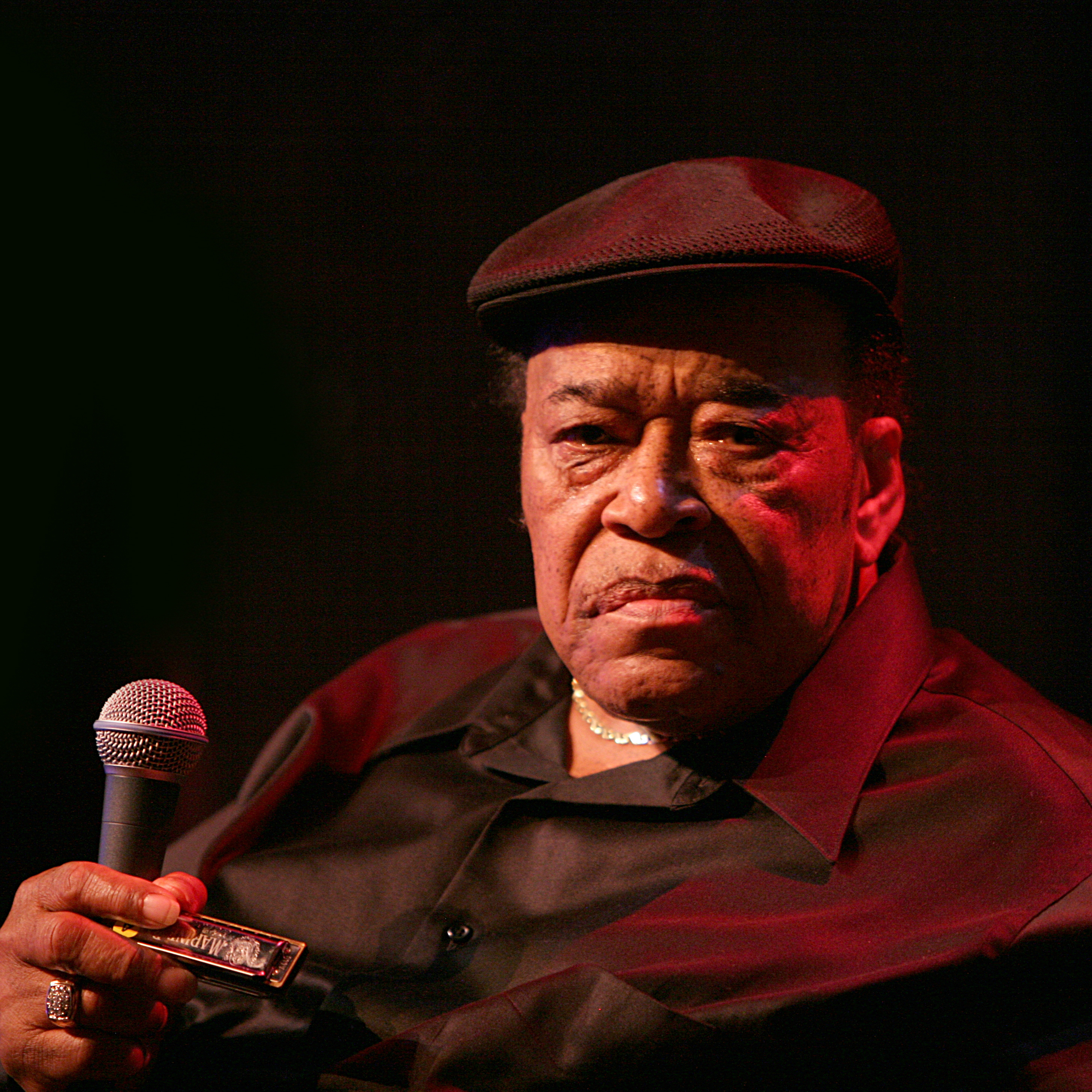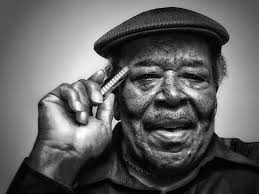James Cotton, born on July 1, 1935, in Tunica, Mississippi, was one of the most electrifying and influential harmonica players in the history of the blues. Known for his explosive energy on stage and masterful harmonica technique, Cotton carved out a legendary career that spanned over six decades, earning him the nickname “Mr. Superharp.”
Early Life and Musical Beginnings
Cotton grew up in the heart of the Mississippi Delta, a region steeped in the traditions of blues music. Orphaned at a young age, he was raised by relatives and later taken under the wing of blues icon Sonny Boy Williamson II (Rice Miller), who became his mentor. As a young boy, Cotton learned harmonica directly from Williamson and began performing on local radio programs in Helena, Arkansas.
Inspired by Williamson’s raw style and charisma, Cotton developed his own powerful voice on the harmonica. By his teenage years, he had already started performing professionally, honing his craft in juke joints and on Southern circuits.
Rise to Fame: Muddy Waters Band
In 1954, Cotton’s big break came when he joined Muddy Waters’ band, one of the most important blues groups of the era. He initially replaced Little Walter, another harmonica giant, and quickly proved his worth. Though he played second harmonica at first, by the late 1950s, Cotton had become Waters’ full-time harmonica player, contributing to several key recordings, including the classic “Got My Mojo Working.”
Cotton’s dynamic presence and fiery harmonica solos helped shape the electric Chicago blues sound. He remained with Waters for over a decade, touring the U.S. and Europe, and gaining international acclaim.
The James Cotton Blues Band
In the mid-1960s, during the blues revival, Cotton struck out on his own and formed the James Cotton Blues Band. This move marked a turning point in his career. He brought a high-octane performance style to his shows, blending traditional blues with elements of rock and soul, which appealed to both older blues audiences and younger rock fans.
Over the years, Cotton released a series of acclaimed albums, including:
- Cut You Loose! (1967)
- 100% Cotton (1974)
- High Compression (1984)
- Deep in the Blues (1996), which won a Grammy Award for Best Traditional Blues Album
Cotton collaborated with many major artists, including Janis Joplin, B.B. King, Johnny Winter, and Keith Richards, bringing blues harmonica to new audiences and crossing genre boundaries with ease.
Later Years and Legacy
Despite facing serious health challenges later in life, including throat cancer which limited his ability to sing, Cotton never stopped performing. He continued touring and recording, often relying on guest vocalists while his harmonica playing remained as passionate and commanding as ever.
His later albums, such as Giant (2010) and Cotton Mouth Man (2013), were met with critical acclaim and featured appearances by stars like Gregg Allman, Warren Haynes, and Joe Bonamassa.
James Cotton passed away on March 16, 2017, in Austin, Texas, at the age of 81. His death marked the end of an era in blues history, but his music continues to inspire generations of harmonica players and blues lovers.
Honors and Recognition
Throughout his career, Cotton received numerous accolades, including:
- Grammy Award (1996)
- Multiple Blues Music Awards
- Induction into the Blues Hall of Fame in 2006
- Lifetime Achievement honors from various music organizations
Conclusion
James Cotton was more than a harmonica virtuoso—he was a bridge between the Delta blues tradition and modern electric blues. With unmatched energy, deep musical roots, and a magnetic stage presence, Cotton helped keep the blues alive and vibrant for decades. His influence is still heard today in the playing of countless blues and rock musicians who were inspired by his sound.
Whether blowing the roof off a packed club or sharing the stage with legends, James Cotton played with heart, soul, and fire. His legacy lives on as one of the true greats of the blues.


Comments are closed